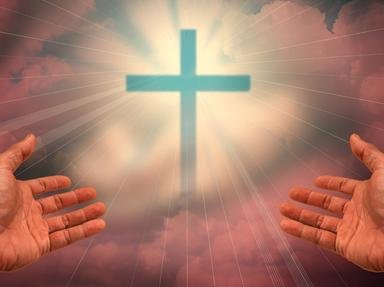Quiz Answer Key and Fun Facts
1. Which Old Testament prophet ate a book and found it sweet?
2. According to Genesis (Chapter 7), God commanded Noah to take unclean animals into the ark in groups of two - one male and one female. For clean animals, how many were to be placed in each group?
3. With what did Mary, Lazarus's sister, anoint Jesus' head, according to the Gospel of John?
4. The book of 1 Samuel relates the story of how the Philistines defeated the Israelites, captured the Ark of the Covenant from them, and placed it in the temple of their god, Dagon. What plague did God set upon the Philistines for this?
5. The New Testament books of Matthew and Mark name four siblings of Jesus. Who were they?
6. In which book of the Old Testament would you find the following everyday expressions: "holier than thou", "woe is me", "drop in a bucket", and "lamb to the slaughter"?
7. How many wise men visited the baby Jesus, according to Matthew's account?
8. According to the book of Numbers, in which country did the Israelites feed on fish, cucumbers, melons, leeks, onions and garlic?
9. How did Judas die, according to the book of Acts?
10. In the book of Genesis, who was exiled to the Land of Nod?
Source: Author
MotherGoose
This quiz was reviewed by FunTrivia editor
looney_tunes before going online.
Any errors found in FunTrivia content are routinely corrected through our feedback system.

